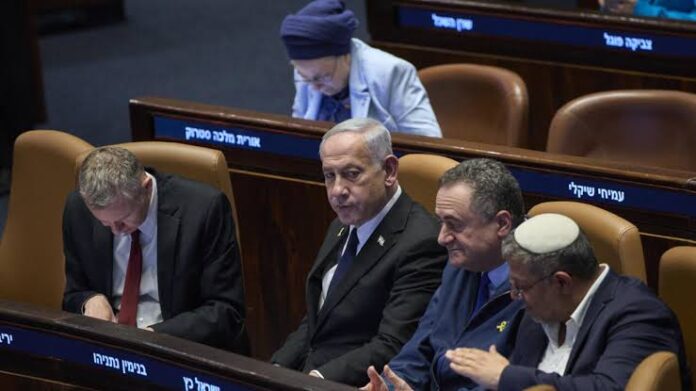Israeli Prime Minister Benjamin Netanyahu is under mounting political pressure after the ultra-Orthodox United Torah Judaism (UTJ) party quit his ruling coalition over a long-running dispute on military conscription exemptions for religious students.
In a dramatic overnight move, six UTJ lawmakers submitted resignation letters from key parliamentary committees and government posts, protesting parliament’s failure to guarantee future military service exemptions for ultra-Orthodox seminary students.
The walkout, which takes effect in 48 hours, leaves Netanyahu with a razor-thin majority in the Knesset.
The potential departure of Shas, a second ultra-Orthodox party and UTJ ally, could plunge the government into a minority, raising the specter of fresh political instability.
However, with the Israeli parliament set to begin its summer recess at the end of July, Netanyahu may have up to three months to broker a solution before his position is seriously threatened.
At the same time, Netanyahu is grappling with internal discord from far-right coalition members over ceasefire talks with Hamas.
The indirect negotiations in Qatar aim to halt the 21-month war in Gaza for 60 days, facilitate the release of half the remaining hostages, and allow humanitarian aid into the devastated strip.
Despite opposition from National Security Minister Itamar Ben-Gvir and Finance Minister Bezalel Smotrich, both of whom demand continued military pressure on Hamas, Netanyahu is expected to have sufficient cabinet support to push through a truce.
“As soon as the right deal is on the table, the prime minister will be able to pass it through,” said his aide, Topaz Luk, on Army Radio.
The crisis has reignited tensions over Israel’s controversial conscription policy.
While most Israelis face mandatory military service, ultra-Orthodox men have historically been exempt, an arrangement that many secular Israelis see as deeply unfair.
The Israeli Supreme Court last year ordered an end to the exemption, prompting the current scramble to draft a new bill.
The Gaza war, triggered by Hamas’s October 7, 2023 surprise attack that killed 1,200 Israelis and saw 251 taken hostage, has claimed the lives of over 58,000 Palestinians and displaced nearly the entire population of Gaza, according to local health officials.
The Israeli military has also suffered its highest combat losses in decades, with around 450 soldiers killed, further fueling public frustration over the unequal burden of service.
With both domestic and international pressure intensifying, Netanyahu now faces a crucial political test: balancing the demands of his increasingly fragmented coalition while steering Israel toward a possible ceasefire.
Written By Rodney Mbua



















